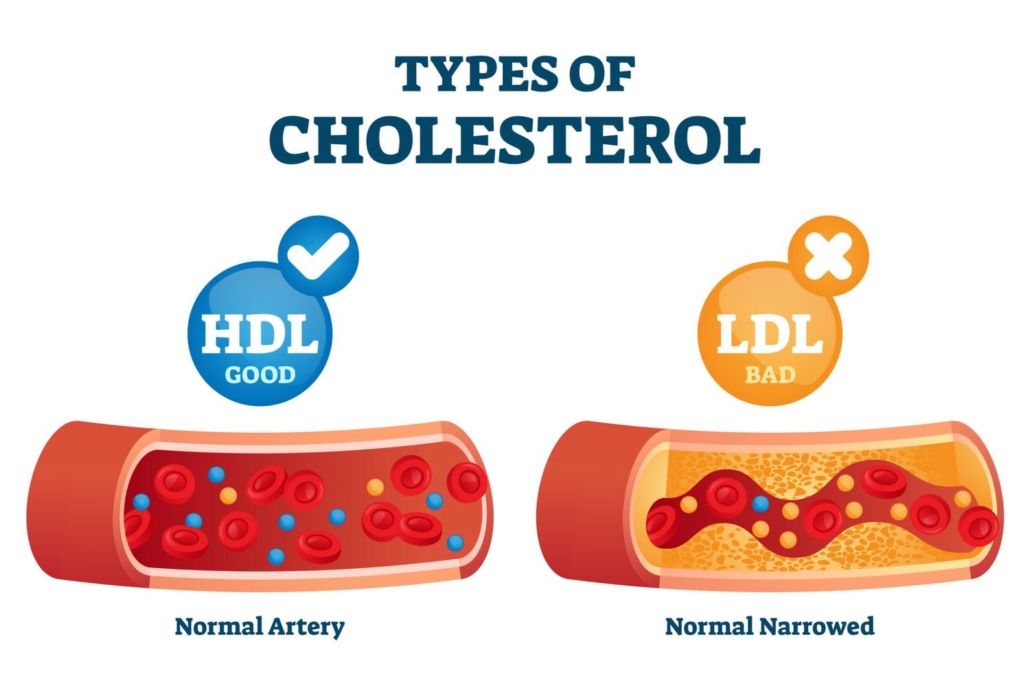About Cholesterol
Blood cholesterol is a waxy, fat-like substance made by your liver. Blood cholesterol is essential for good health. Your body needs it to perform important jobs, such as making hormones and digesting fatty foods. Your body makes all the blood cholesterol it needs, which is why experts recommend that people eat as little dietary cholesterol as possible while on a healthy eating plan.
| Optimal Cholesterol Levels1 | |
|---|---|
| Total cholesterol | About 150 mg/dL |
| LDL (“bad”) cholesterol | About 100 mg/dL |
| HDL (“good”) cholesterol | At least 40 mg/dL in men and 50 mg/dL in women |
| Triglycerides | Less than 150 mg/dL |
What are signs and symptoms of high cholesterol?
High blood cholesterol doesn’t have symptoms, which is why getting your cholesterol levels checked is so important.
Knowing your cholesterol status can help you stay in control of your health.
What causes high cholesterol?
Certain health conditions, such as type 2 diabetes and obesity, can raise your risk for high cholesterol. Lifestyle factors, such eating a diet high in saturated and trans fats and not getting enough activity, can also raise your risk for high cholesterol. Some people who have a family history of high cholesterol can also be at risk for high cholesterol. All these factors are called “risk factors.”
You can’t control some of these risk factors, such as your age or your family history. But you can
What problems does high cholesterol cause?
Having high blood cholesterol can lead to a buildup called “plaque” on the walls of your arteries (a type of blood vessel).
As plaque builds up over time, the insides of your arteries narrow. This narrowing blocks blood flow to and from your heart and other organs. When blood flow to the heart is blocked, it can cause chest pain (also called angina) or a heart attack (also called myocardial infarction).
High cholesterol also increases your risk for heart disease and stroke, two leading causes of death in the United States.
How do I know if I have high cholesterol?
The only way to know whether you have high cholesterol is to get your cholesterol checked by your health care team. Talk with your health care team about how often you should have your cholesterol screened.
What can I do to prevent or manage high cholesterol?
Strong evidence shows that eating patterns that include less dietary cholesterol are associated with reduced risk of cardiovascular disease.
Your overall risk for high cholesterol depends on many factors.

